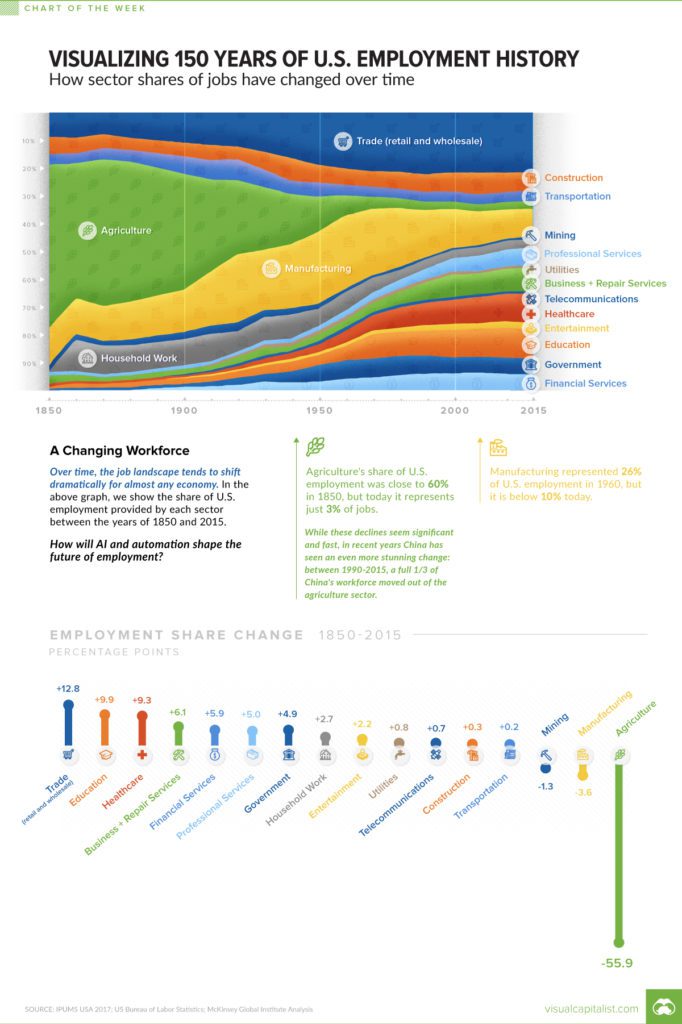rebel Financial is a Registered Investment Advisor that provides retirement planning, estate planning, financial planning, and investment management services to individual and institutional clients. To get a more detailed description of the company, its management, and practices, view our (form ADV, Part2A) and Disclosures.
Fiduciary & Fee-Only Financial Advisors and Planners

 Due to automation and more efficient production, and outsourcing abroad, manufacturing jobs have declined as well, but you might be surprised that total manufacturing employment is down just 3.6% (in terms of total workforce participation) from 150 years ago. But that’s misleading; in 1960, factory jobs made up 26% of all American employment. As the U.S. became the world’s leading economy, manufacturing became one of its largest job producers, and has since declined. If robots and factory floor automation take hold, this trend should continue even if more goods are produced domestically.(
Due to automation and more efficient production, and outsourcing abroad, manufacturing jobs have declined as well, but you might be surprised that total manufacturing employment is down just 3.6% (in terms of total workforce participation) from 150 years ago. But that’s misleading; in 1960, factory jobs made up 26% of all American employment. As the U.S. became the world’s leading economy, manufacturing became one of its largest job producers, and has since declined. If robots and factory floor automation take hold, this trend should continue even if more goods are produced domestically.(





